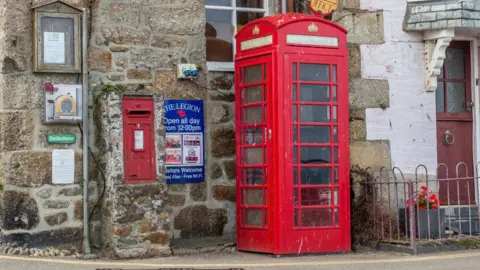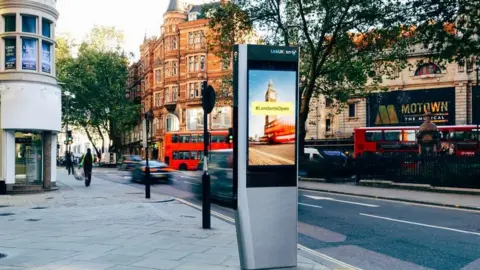BT to scrap half of the UK's remaining telephone boxes
 BBC
BBCBT is to scrap half of the UK's remaining 40,000 telephone boxes and focus on the ones in locations where people are more likely to use them.
In 1992 at their peak before mobile phones became popular, there were 92,000 phone boxes in the UK.
Telephone boxes still handle 33,000 calls a day, but one third of kiosks are never used to make a call.
BT said many phone boxes had become a burden and were expensive to repair and maintain.
£6m to maintain
"BT is committed to providing a public payphone service, but with usage declining by over 90% in the last decade, we continue to review and remove payphones which are no longer used," a BT spokesperson told the BBC.
BT intends to scrap the 20,000 telephone boxes over the next five years.
Out of the 40,000 phone booths still working, 7,000 are the traditional red phone boxes designed in 1935 to commemorate the silver jubilee of King George V.
More than half of phone boxes lose money and the number of calls is declining by more than 20% per year.
The cost of maintaining telephone boxes annually is about £6m. BT is responsible for repairing damage to the kiosks, including replacing glass panes and broken receivers, as well as removing graffiti, rubbish and human waste.
'Local veto'
It is estimated that 93% of all people in the UK now own a mobile phone, and 98% of the UK has 3G or 4G mobile internet coverage.
However, phone booths are still used by children, the elderly, people who can't afford mobile phones, and in emergencies when smartphone batteries go flat.
If there are two kiosks within 400m walking distance of a site, BT is allowed to remove one, as long as there is one left.
But if the telecoms provider seeks to remove the only phone booth on the site, Ofcom rules state BT must inform the public and consult with the local authorities. The authority then has 90 days to object, which is known as a "local veto".
"Payphone removals are carried out in strict adherence to Ofcom guidelines and, where appropriate, with the consent of local authorities. Where we receive objections from the local authority, we won't remove the payphone," said BT.
Adopt a kiosk
In areas where telephone boxes are not being used, many local communities have transformed and preserved phone booths by buying them for £1 from BT under the Adopt a Kiosk scheme.
So far, more than 4,000 kiosks have been repurposed as mini-libraries and art galleries or to house defibrillation machines, information centres, shops and exhibitions.
 BT
BTBT is also replacing phone booths with high-tech InLinkUK kiosks that come with ultra-fast 1Gbps Wi-Fi hotspots, a touchscreen offering information and directions, free UK landline and mobile phone calls, and two USB smartphone charging ports.
Over 750 InLinkUK kiosks are being installed in London and other cities across the UK.